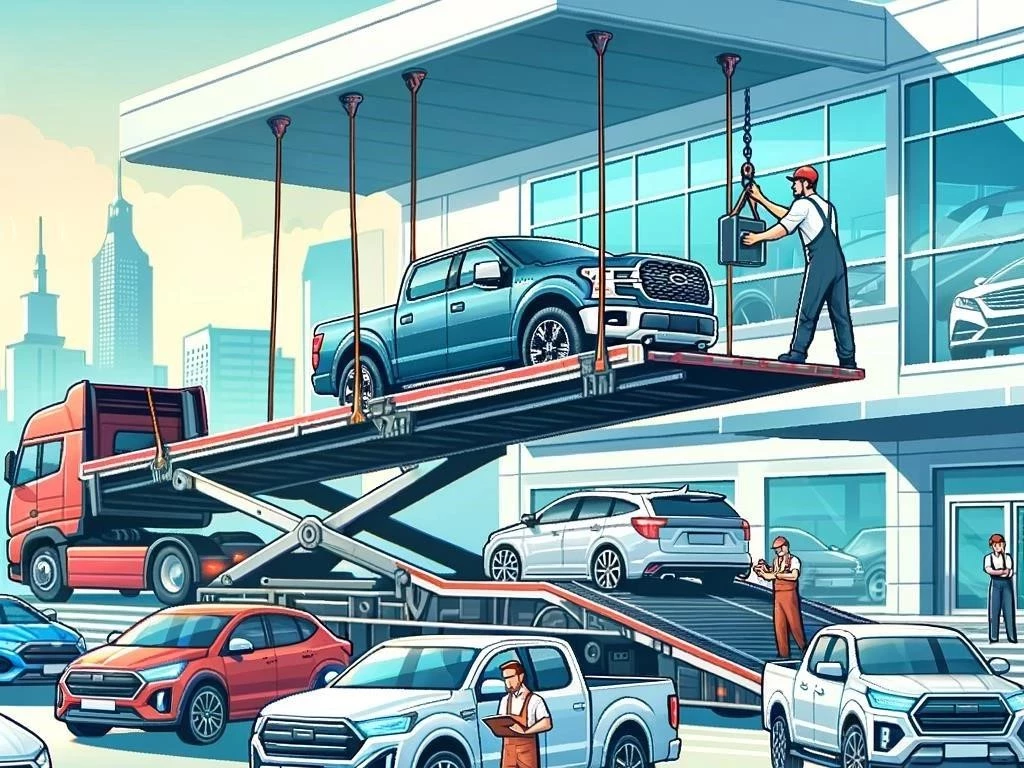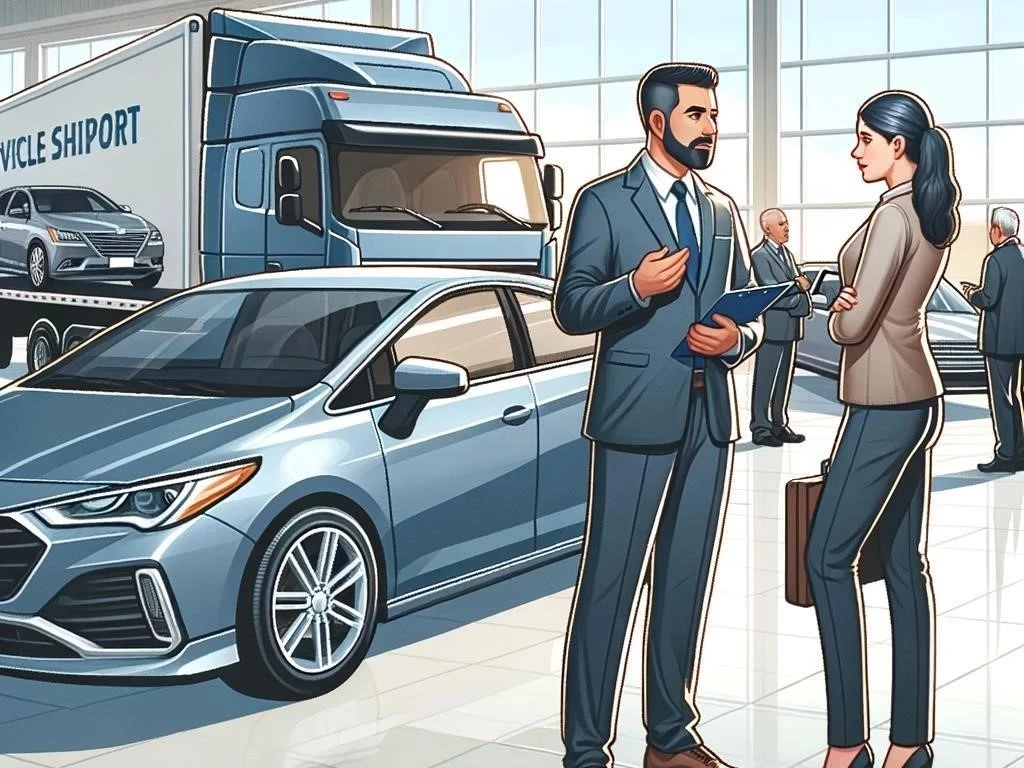Can Dealerships Ship Cars?
Yes, dealerships can ship cars. They often provide logistics solutions, coordinating with freight services for safe auto delivery. This convenience enhances the customer experience, making online car buying and vehicle transport easier for buyers nationwide.
Understanding Car Shipping
Car shipping refers to the process of transporting vehicles from one location to another, a service increasingly utilized by dealerships to facilitate customer purchases. When engaging in auto delivery, it is essential to understand the logistics involved, including various shipping options available to ensure safe and efficient vehicle transport. Dealerships typically partner with experienced freight services to manage the complexities of automotive shipping, ensuring compliance with shipping regulations and handling trade-in vehicles effectively.
Online car buying has gained popularity, prompting dealerships to enhance their shipping capabilities to meet customer demands. This includes providing clear information about shipping costs, which can vary based on distance, vehicle size, and chosen delivery methods. Dealership services often include tracking mechanisms, allowing customers to monitor their vehicle’s journey, ensuring transparency throughout the delivery process. Excellent customer service is crucial in this context, as it helps manage expectations and addresses any concerns that may arise during transportation. By understanding car shipping, buyers can make informed decisions, enhancing their overall experience with car sales.
Dealerships and Vehicle Transport
Dealerships play a pivotal role in vehicle transport, providing essential services for customers looking to purchase cars remotely. With the rise of online car buying, dealerships have adapted their operations to include car shipping as a core offering. By leveraging freight services, they ensure that vehicles are safely and efficiently transported to buyers across various regions. This capability significantly enhances the dealership’s appeal, allowing them to reach a broader audience while simplifying the car purchase process for customers.
In addition to facilitating long-distance delivery, dealerships often handle logistics, coordinating aspects such as scheduling, loading, and unloading of vehicles during transportation. This includes managing trade-in vehicles, ensuring a seamless transition for customers trading their old cars for new ones. Effective communication is vital in this process, as dealerships must keep buyers informed about the status of their vehicle transport. By prioritizing customer service and providing transparent shipping information, dealerships can build trust and satisfaction among their clientele, making them a preferred choice for auto delivery and vehicle logistics.

Shipping Options Available
When dealerships offer car shipping, they typically provide a range of shipping options to accommodate diverse customer needs. The most common choices include open transport and enclosed transport. Open transport is the more economical option, where vehicles are loaded onto open trailers, allowing for the transport of multiple cars simultaneously. This method is widely used due to its affordability, though it exposes vehicles to environmental factors during transit.
On the other hand, enclosed transport provides a higher level of protection, as vehicles are transported within a fully enclosed trailer. This option is ideal for luxury, classic, or high-value vehicles, as it minimizes the risk of damage from weather or road debris. Additionally, dealerships may offer expedited shipping for customers needing quicker delivery, though this often incurs higher shipping costs.
Some dealerships also provide door-to-door delivery services, ensuring maximum convenience for buyers. By offering various shipping options, dealerships cater to different budgets, preferences, and vehicle types, enhancing the overall car purchasing experience while optimizing logistics for vehicle transport.
Shipping Costs and Regulations
Shipping costs for car transport can vary significantly based on various factors, including distance, vehicle size, and chosen shipping options. Dealerships often provide potential buyers with estimates that take these variables into account, helping customers make informed decisions. Additionally, the type of vehicle being shipped—such as standard cars, SUVs, or luxury models—can influence prices, with larger or high-value vehicles generally incurring higher shipping fees.
Understanding shipping regulations is also crucial for dealerships engaging in vehicle transport. Different states may have specific laws regarding vehicle shipping, including requirements for documentation and compliance with safety standards. Dealerships must ensure that they adhere to these regulations to avoid potential fines or legal issues. Furthermore, they need to be aware of insurance requirements during transport, as this protects both the dealership and the customer against potential damages.
By effectively communicating shipping costs and regulatory compliance, dealerships enhance their customer service and support buyers throughout the car purchasing journey. Transparency in these areas helps build trust and fosters positive relationships between dealerships and their clients.
The Delivery Process and Customer Service
The delivery process for car shipping is a critical aspect of the overall customer experience when dealerships facilitate vehicle transport. Following the completion of a car purchase, dealerships coordinate with freight services to arrange the logistics of shipping. This includes scheduling pickup times and selecting the appropriate transport method based on customer preferences and vehicle specifications. Clear communication throughout this process is essential, as it keeps customers informed about their vehicle’s status and expected delivery timeline.
Dealerships prioritize customer service during the delivery phase, addressing any concerns or questions that may arise. Providing tracking information allows customers to monitor their vehicle’s journey, reinforcing transparency and trust. Additionally, dealerships should ensure that all necessary paperwork, including registration and title documents, is prepared for a smooth transition upon delivery.
In the event of any delivery issues, prompt and effective customer service is crucial. Dealerships must be prepared to handle complaints or delays with professionalism, ensuring that customers feel valued and supported throughout their car shipping experience. This commitment to service ultimately enhances customer satisfaction and loyalty.








